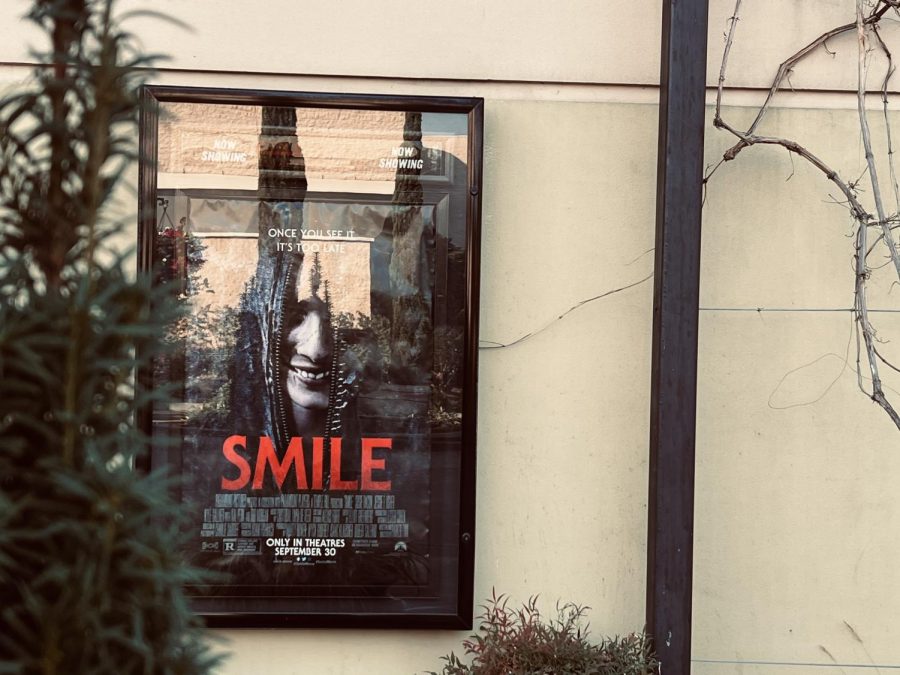‘Smile’: A Movie That Won’t Leave You Smiling
The new psychological thriller “Smile” stars Caitlin Stasey, the actress shown in the photo, who is the center point and beginning of the terrifying events in the film.
October 26, 2022
The movie reviewed is rated R and contains explicit content.
The breakout film, “Smile”, is a chilling piece reflecting the effects of trauma in our society, and deals with the topic of mental health.
Before its release, the movie had incredible marketing and publicity. Actors were sent to Major League Baseball games to sit right behind home plate and creepily smile for the duration of the game — in imitation of several of the movie’s scenes.
This new thriller was released Sept. 30, and follows the story of a psychiatrist named Dr. Rose Cotter who experiences frightening, unexplainable occurrences that begin after witnessing a bizarre incident with a patient. These experiences start to take over everything and everyone in her life.
In trying to confide in people around her, like Cotter’s husband or other doctors, no one believes her and thinks she’s just going crazy from her recent witnessing of a patient’s suicide. Cotter begins to lose trust in everyone, and realizes the only person she has is herself.
She must go back to the terrifying trauma in her past in order to conquer her present.
This film is full of believable acting, countless plot twists, unsettling grins, and sinister music. The eerie setting adds to the plot, which deals with real problems in our society. I was satisfied after leaving the theater, but also left disoriented.
The open ended, cliffhanger ending of “Smile” can be interpreted in many ways. It suggests that there are different ways of dealing with trauma such as passing it on to new victims, accepting it, or letting it overwhelm your life.
The dismissive nature of the people around Dr. Cotter and her visions depict the rejection of mental health in society.
The director of this film, Parker Finn, was interviewed in an article where he explained the movie’s ending. “Horror audiences have gotten so savvy, so I tried to put myself in their shoes,” he said. “What would I be expecting? What would I be anticipating? And I tried to subvert that and do something that might catch them off-guard, and kind of flip them on their heads.”
Finn’s goal was to give lots of fake-out endings that watchers would never expect, and he succeeded. I was left wrong in my many attempts to predict the ending.
This movie is a must watch — not only is it terrifyingly produced, but if you understand the deeper message, it’s even more chilling.
If you are suffering with mental health and rejection the suicide hotline is: 1-800-273-8255





